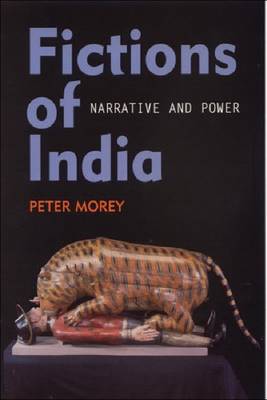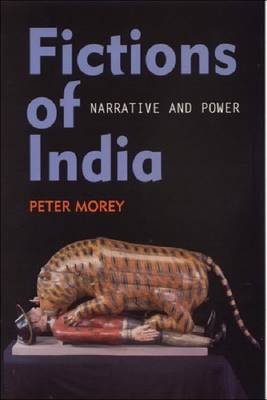
- Retrait gratuit dans votre magasin Club
- 7.000.000 titres dans notre catalogue
- Payer en toute sécurité
- Toujours un magasin près de chez vous
- Retrait gratuit dans votre magasin Club
- 7.000.0000 titres dans notre catalogue
- Payer en toute sécurité
- Toujours un magasin près de chez vous
Description
Fictions of India explores the relation of narrative technique to issues of power in the work of selected writers dealing with India. It examines the imperial context in which the writers operate and suggests how historical and ideological assumptions and anxieties may be read into the texts they produce. The study combines aspects of colonial and post-colonial debate with narrative theories to illuminate the work of these writers operating on either side of an epistemological divide formed by Indian independence in 1947. The book focuses largely on British writers on India with chapters on Kipling, E.M. Forster, John Masters, J.G. Farrell and Paul Scott. A final, comparative chapter traces the issues of narrative and power in the work of two post-independence Indian writers - Khushwant Singh and Rohinton Mistry - and deals with the burden of storytelling in a post-colonial situation still fraught with communal and neo-colonial abuses.This book is an important contribution to our understanding of how narrative fiction can reflect and confirm, but also contest and dismantle discourses of power.Features* Offers new interpretations of well-known texts and writers* Suggests an agenda for studying new and less well-known texts to examine the play of narrative and power more generally* Demonstrates possible relations between narrative technique and those larger narratives which feed into the operation of political power* Challenges exclusivist readings which have often asserted 'the colonial' and 'the post-colonial' to be antithetical and mutually exclusive discursive entities
Spécifications
Parties prenantes
- Auteur(s) :
- Editeur:
Contenu
- Nombre de pages :
- 224
- Langue:
- Anglais
Caractéristiques
- EAN:
- 9780748611812
- Date de parution :
- 15-09-00
- Format:
- Livre broché
- Format numérique:
- Trade paperback (VS)
- Dimensions :
- 154 mm x 233 mm
- Poids :
- 344 g

Les avis
Nous publions uniquement les avis qui respectent les conditions requises. Consultez nos conditions pour les avis.






